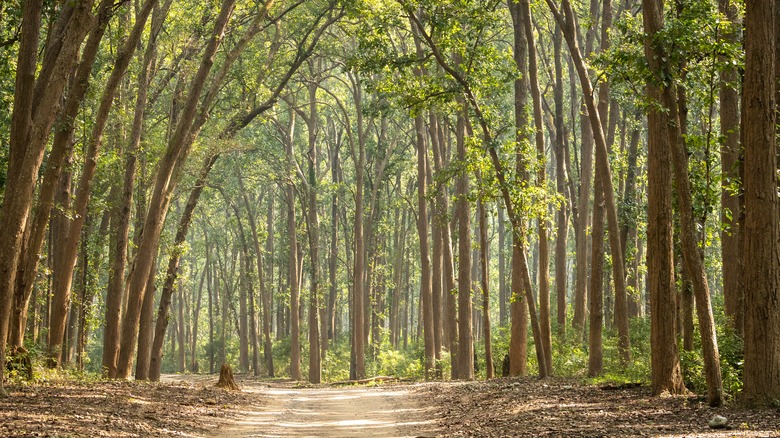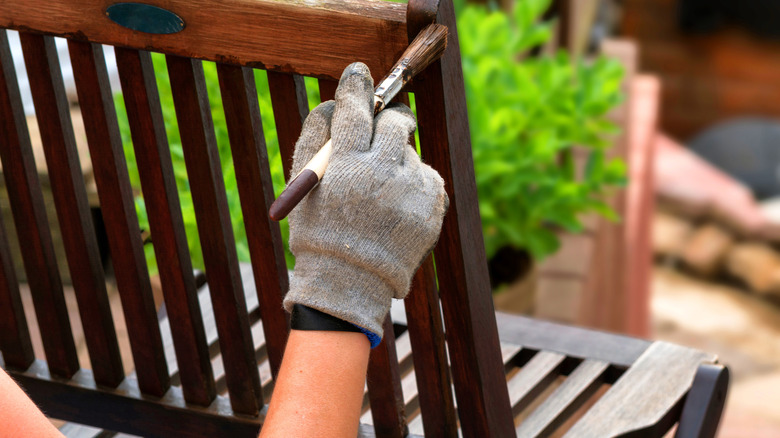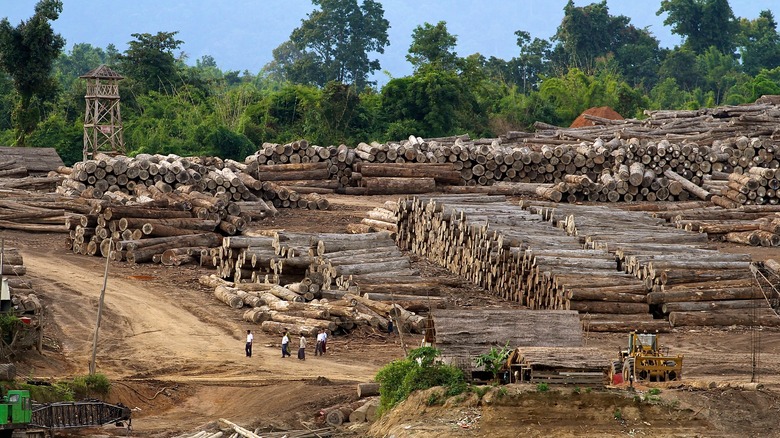What Is Shorea Wood?
Timeless garden furniture, unfortunately, doesn't really stand the test of time — the toll that the elements take on these pieces is undeniable. If you want your garden furniture to last, making sure that it is constructed from a strong and durable material is key.
According to Oxford Garden, shorea is a tropical hardwood that is perfect for garden furniture. Hardwoods like shorea and teak are tightly-grained, strong, and naturally resistant to mold and rot. While teak is more well-known, it is also very expensive, however, shorea is a more affordable option that doesn't sacrifice quality or appearance. One reason that shorea wood might not be as well-known as it deserves to be, per Teak Wood Supply, is that it is often sold under a number of wood pseudonyms. Shorea wood is also known as Meranti wood, Philippine mahogany, or Balau wood, among others.
Even though it isn't as well known as teak, shorea wood is potentially more affordable, sustainable, and durable — which is a recipe for excellent deals on garden furniture!
Shorea verses Teak
Hardwood has an inherent resistance to moisture, insects, and decay. This is why decks, boats, and furniture that are exposed to wind and rain are often constructed of hardwoods. However, the global demand for teak far exceeds the supply, according to Escape Artist. This keeps the price of teak very high, while the more available shorea costs comparatively little.
Shorea and teak share a lot of physical characteristics, too, explains Outdoor Furniture Plus. They are tropical hardwoods native to South East Asia, and they both have similar densities — around 45lb per cubic foot, which is twice as dense as cedar. In addition, they both have a high concentration of natural oils, which contributes to their water resistance, as well as repelling many insects and most forms of rot.
Per Shorea, oiling your furniture every two months will help to retain its warm red color for longer. Though the wood will always eventually turn a silvery-grey color — this layer can be gently sanded away for a full restoration.
Is shorea wood sustainable?
The impressive natural qualities of tropical hardwoods are prized around the world, and this can lead to overexploitation. According to National Geographic, Chinese, Indian, and European demand for teak from Myanmar has led to the South East Asian nation losing an area of forest roughly equivalent to Michigan since 1990.
The issue with teak from Myanmar is that it is being logged from forests that are diverse, fragile ecosystems. Conversely, the bulk of shorea wood is grown in sustainably managed forests, which means these trees can act as a carbon sink over their 250-year lifespan, according to Impactful Ninja. This is the major reason that shorea wood is considered more environmentally friendly than teak. However, illegal logging of shorea wood from protected rainforests is also frequent, so do make sure that anything you buy from this incredible wood was harvested in an ethical and responsible way.


